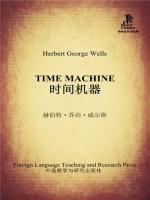good book
十六夜雨音
The story follows an unnamed protagonist, known simply as the Time
Traveller, who invents a device capable of transporting him through
time. As he embarks on his extraordinary expedition, he travels far into
the future, witnessing the evolution of humanity and encountering
startling civilizations along the way. Wells' imaginative narrative is
filled with rich descriptions and vivid imagery, painting a picture of a
future world that is both fascinating and chilling. The author's
attention to detail in depicting the distant future is remarkable, as he
presents a society divided into two distinct species: the Eloi and the
Morlocks. The Eloi are frail, childlike beings who live in a utopian
environment, while the Morlocks dwell underground, tending to industrial
machinery and preying on the Eloi. This stark juxtaposition between the
two species raises thought-provoking questions about the potential
consequences of societal division. Beyond its captivating plot,
"The Time Machine" delves into deeper themes and social
commentary. Wells uses the narrative as a platform to explore issues of
class struggle, the decline of civilization, and the human instinct for
survival. The stark contrast between the idyllic Eloi and the sinister
Morlocks serves as a metaphor for the disparity between the privileged
upper classes and the exploited working class in Wells' own time. By
projecting these concerns into the future, the author forces readers to
confront the consequences of societal inequality. Moreover, Wells'
exploration of time as a concept opens up philosophical and existential
dimensions. Through the Time Traveller's experiences, readers are
prompted to consider the nature of existence, the transience of human
achievement, and the fragility of civilization itself. The author
skillfully weaves these contemplations into the fabric of the story,
leaving readers with lingering questions and a sense of awe.




 京公网安备 11010802032529号
京公网安备 11010802032529号